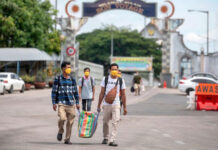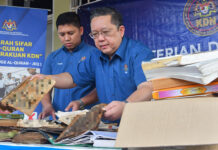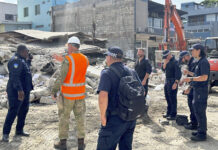Rizal Faisal
With the proliferation of media devices over the last two decades, excessive screen time has become a health problem plaguing the community. Thus issue is exacerbated by the COVID-19 pandemic with screen time of adolescents and children rising drastically due to restrictions causing most activities – be it leisure or learning – to go online.
Due to this, the Health Promotion Centre’s (HPC) latest edition of National Physical Activity Guideline (NPAG) has new chapters on excessive screen time.
Seven third-year medical students from the Pengiran Anak Puteri Rashidah Sa’adatul Bolkiah Institute of Health Sciences (PAPRSB IHS), Universiti Brunei Darussalam (UBD) teamed up to form ‘Re-vitalise’ for a community project to promote awareness regarding excessive screen time and improper usage of media devices with HPC.
The students are Wong Tze Yoong @ Allen Stuart, Nurul Farzana binti Sharul Tazrajiman, Naila Nabiha binti Sahari, Nurin Jazmina binti Muhammad Syafiq, Aeryza bin Sufiri, On Jing Wei, Chua Siew Hoon.
The group visited the Tutong Sixth Form Centre, Meragang Sixth Form Centre, Belait Sixth Form Centre, Sengkurong Sixth Form Centre, Duli Pengiran Muda Al-Muhtadee Billah College and Paduka Seri Begawan Sultan Science College.
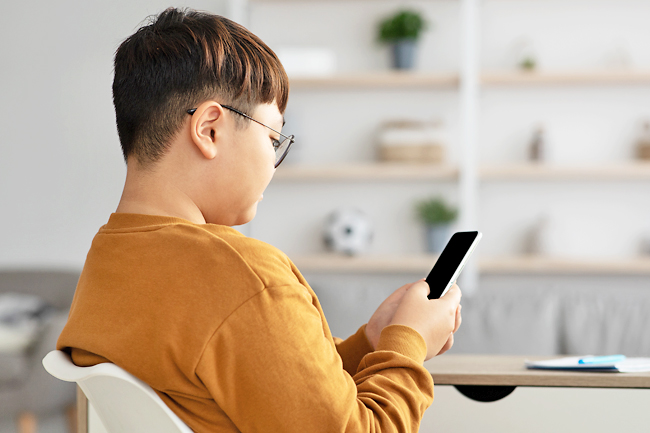


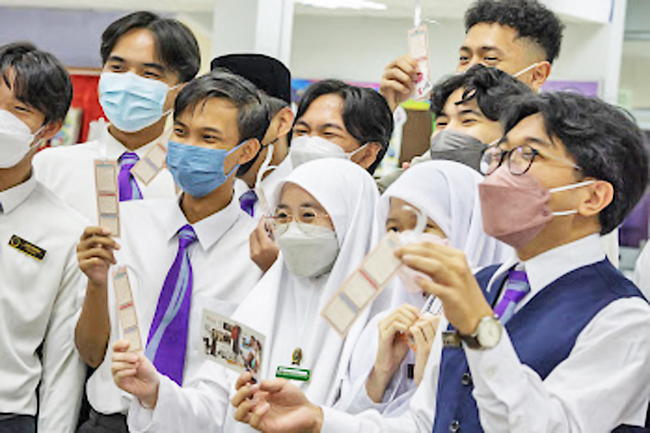
The visits included exhibitions and educational talks by medical experts.
The programme shared some health consequences of excessive screen time including the impact on eyes, bodily discomfort such as neck pain, lower back pain as well as sleep problems. Bookmarks with tips and reminders were also handed out to students.
There were also games to test the students’ knowledge such as Jenga.
The talks had questions that students answered to win prizes sponsored by Netcom.
The discussions included computer vision syndrome by Dr Haji Azimuddin Azim Siraj, repetitive strain injuries by Dr Ketan Pande, the effect of screen time on sleep by Dr Sohail Manzoor Abbasi, the effect of screen time on mental health by Dr Abang Bennett and a briefing on NPAG by a member of the Re-vitalise team.
The students were briefed on the importance of physical activity and advised to incorporate physical activity into their daily life. They were told about the BN on the Move initiative by HPC and were encouraged to join the movement.
The Re-vitalise team also conducted a 30-day screen-time challenge and a virtual run.
The medical experts also shared a few words of advice with the Bulletin.
Dr Haji Azimuddin said, “The overuse of digital devices not only causes digital eye syndrome (eye strain, blurred vision and discomfort), but can also affect the musculoskeletal system (leading to fatigue and strain), lack of physical activity and obesity, and the mind (leading to mood changes, poor academic performance and sleep disorders).”
Dr Sohail advised, “As human beings, we are biologically designed to get eight hours of sleep. For a healthy and productive life, we should prioritise our sleep every day. We need to learn how technology and light affects our sleep and what we can do about it to improve our everyday sleep.”
Dr Norhayati binti Haji Ahmad said, “Every move counts, even a few minutes of physical activity will give health benefits.”
Re-vitalise compiled several tips for healthier screen usage, which include: create screen-free zones in the house, for example no devices on the dinner table or in the bedroom; do not use media devices one hour before sleeping; use applications such as ‘Flipd’ or ‘Forest’ that lock the phone from distracting apps such as social media; replace screen activities with non-screen activities such as spending more time with friends and family; learning new hobbies such as taking up a new musical instrument and incorporating physical activity; incorporate better ergonomics while using screen devices for prolonged periods of time to prevent physical discomfort such as eye strain and body pain.







